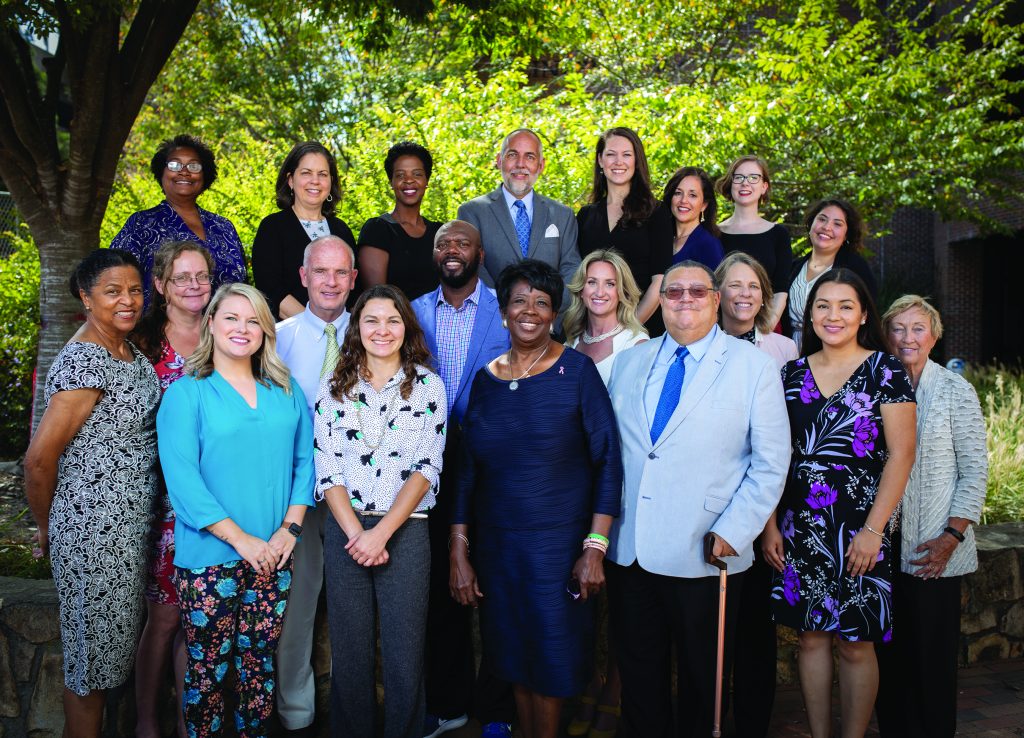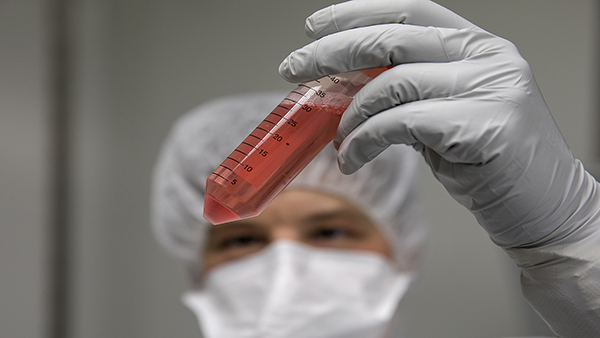About UNC
About UNC Lineberger
The UNC Lineberger Comprehensive Cancer Center is a cancer research and treatment center at the University of North Carolina at Chapel Hill. Serving patients at the N.C. Cancer Hospital, UNC Lineberger is the only public National Cancer Institute-designated comprehensive cancer center in the state of North Carolina.
About the N.C. Cancer Hospital

The N.C. Cancer Hospital is the flagship site for UNC Cancer Care and the clinical home of UNC Lineberger Comprehensive Cancer Center, where we are exerting an unprecedented effort to make strides against cancer and the suffering it causes is fueled by collaboration across the population, basic and clinical sciences.
Our research and clinical care leaders
UNC Lineberger members carry out research within one of our nine center scientific programs:
- Breast Cancer Research
- Cancer Cell Biology
- Cancer Epidemiology
- Cancer Genetics
- Cancer Prevention and Control
- Clinical Research
- Global Oncology
- Immunology
- Molecular Therapeutics
- Virology
Additionally, some members are physician-researchers, who are vital components of our patient care team.
In addition to patient care within our clinics, UNC Lineberger offers several hundred clinical trials for adults and children who have cancer or blood disorders.
The Comprehensive Cancer Support Program offers programs and services to patients and caregivers during treatment, recovery and survivorship.
Community Outreach and Engagement at UNC Lineberger

The Office of Community Outreach and Engagement ensures that UNC Lineberger research, clinical care, and programmatic efforts are timely, relevant, responsive, and infused with community perspectives, including those perspectives of policy makers, community providers and public health practitioners, cancer patients and caregivers, and the public at large. The COE office plays an important role by helping UNC Lineberger reduce disparities and improve cancer outcomes for the people of North Carolina.
Highlighted programs and initiatives
Geriatric Oncology Program
Older patients with cancer can be seen by both an expert in their type of cancer as well as a geriatric oncologist to maximize the quality of care for each individual. The Geriatric Oncology Program brings together expertise from across UNC to ensure the highest quality cancer care for older patients and to conduct research that furthers understanding of the factors affecting cancer treatment in the elderly. Program faculty also aim to educate medical students, residents, fellows, and faculty on issues related to geriatric oncology.
CAR-T immunotherapy

UNC Lineberger is one of a select few academic centers in the United States — and the only center in North Carolina, Georgia, South Carolina, Tennessee and Virginia — with the scientific, technical and clinical capabilities to identify new tumor targets and then develop and infuse novel CAR-T immunotherapy.
These investigational therapies are manufactured at UNC Lineberger and are not commercially available; they are part of CAR-T clinical trials that are only available at UNC Lineberger.
Malawi Cancer Consortium
The UNC-Malawi Cancer Consortium is funded through a multi-investigator cooperate grant (U54 CA190152) between UNC Lineberger and Lighthouse Trust, the Malawi Ministry of Health, and University of Malawi College of Medicine.
The UNC-Malawi Cancer Consortium seeks to:
- Contribute to an accurate accounting of all all cancer incidences in Malawi. Malawi is one of only a handful of countries in Africa that contribute data to the WHO/IARC world-wide cancer registries.
- Understand lymphomas (pediatric and adult) in Malawi and to develop new treatments for this devastating disease.
- Understand Kaposi Sarcoma (pediatric and adult) in people living with HIV/AIDS in Malawi and to develop new treatments for this devastating disease.